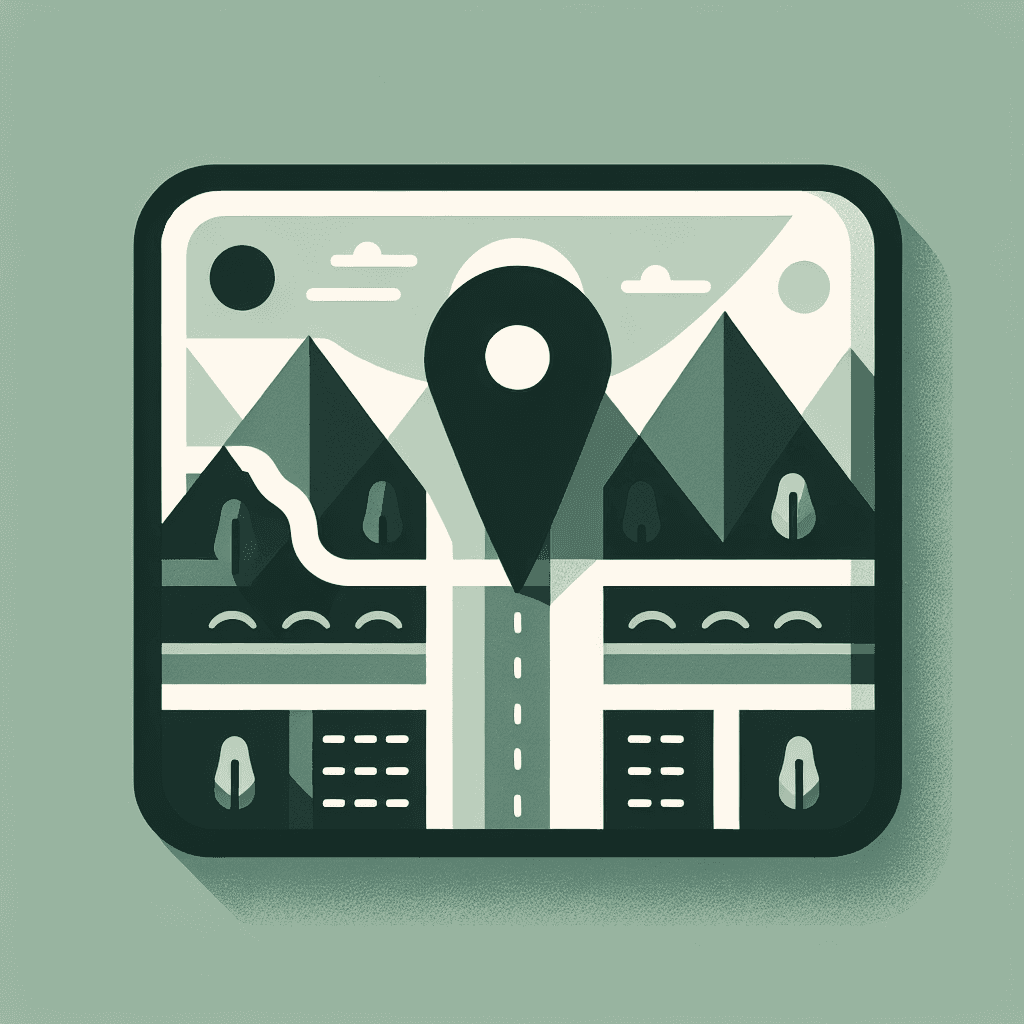
Published in Trauma's Impact

Raeva Kumar
Trauma Survivor / Cofounder of Rebound
November 18, 2024
Why Lots of Trauma Survivors Struggle to Get a Driver’s License
It's not just laziness.
Have you ever wondered why you never got your driver’s license, even though it seemed like everyone else did? It’s easy to blame yourself—to assume you were just lazy or unmotivated—but the truth is often far more complex.
For many, delaying or avoiding this milestone isn’t about a lack of effort; it’s a reflection of deeper challenges rooted in trauma, anxiety, or life circumstances. Let’s break down some of the most common (and overlooked) reasons why getting your license may have felt impossible—and why it’s never too late to reconsider.
1. A Sense of a Foreshortened Future
For trauma survivors, imagining a long-term future can feel impossible. This experience, known as a sense of a foreshortened future, happens when trauma keeps your brain in survival mode, focused entirely on getting through today.
A driver’s license, which symbolizes independence and forward planning, may have felt pointless or unattainable. Why invest in something for the future when your brain struggles to believe a future even exists?
2. No Stable Parental Figure to Teach You
Many people learn to drive with the help of a parent or guardian. But what happens when that support isn’t available?
If you grew up in a home with absent, neglectful, or emotionally unavailable caregivers, you may have missed out on the guidance and encouragement that often comes with learning to drive. Without someone to model confidence or offer hands-on support, the idea of navigating the road on your own might have felt overwhelming.
3. Anxiety About Safety
Driving is a big responsibility, and for some, the thought of getting behind the wheel is terrifying.
If you’ve experienced trauma, anxiety about safety might feel heightened—both for yourself and for others. You might worry about making a mistake or causing harm, or you may feel hyperaware of the risks of being on the road. This fear can become paralyzing, making it easier to avoid driving altogether.
4. Lack of Trust in Yourself or Others
Driving requires trust: trust in your own abilities and trust in other drivers on the road. For those with a history of trauma, trust may be a significant challenge.
You might question whether you can make quick decisions or handle high-pressure situations. Or you may feel unsafe relying on strangers in other cars to follow the rules of the road. Without that foundation of trust, driving can feel like an insurmountable hurdle.
5. Financial Barriers
Let’s not overlook the practical side: learning to drive costs money. From driver’s education classes to licensing fees and insurance, the process can be expensive, especially if you didn’t have financial support growing up.
If money was tight, you may have deprioritized getting a license in favor of more immediate needs.
Why It’s Not Too Late
If you’ve put off getting your license, it’s important to remember this: your reasons are valid, and you’re not alone. Healing, growth, and self-trust are ongoing processes, and you can choose to revisit this milestone at any time.
Here’s how to start:
Address the Underlying Causes: If anxiety, trauma, or self-doubt are holding you back, consider exploring tools like therapy or trauma recovery apps like Rebound. These resources can help you process your fears and build confidence.
Start Small: Learning to drive doesn’t have to happen all at once. Begin with short practice sessions in a safe, familiar environment.
Seek Support: Whether it’s a trusted friend, family member, or driving instructor, having someone by your side can make the process feel less daunting.
Reframe the Narrative: It’s not about what you didn’t do in the past—it’s about what you’re ready to do now.
A Road Worth Traveling
Not getting your license isn’t a failure—it’s a reflection of the challenges you’ve faced. The good news? Every roadblock has a solution, and every milestone can be revisited.
Whether you’re ready to tackle this goal now or simply reflecting on why it’s been hard, know this: you’re not alone, and your journey forward is entirely your own.
References
Have you ever wondered why you never got your driver’s license, even though it seemed like everyone else did? It’s easy to blame yourself—to assume you were just lazy or unmotivated—but the truth is often far more complex.
For many, delaying or avoiding this milestone isn’t about a lack of effort; it’s a reflection of deeper challenges rooted in trauma, anxiety, or life circumstances. Let’s break down some of the most common (and overlooked) reasons why getting your license may have felt impossible—and why it’s never too late to reconsider.
1. A Sense of a Foreshortened Future
For trauma survivors, imagining a long-term future can feel impossible. This experience, known as a sense of a foreshortened future, happens when trauma keeps your brain in survival mode, focused entirely on getting through today.
A driver’s license, which symbolizes independence and forward planning, may have felt pointless or unattainable. Why invest in something for the future when your brain struggles to believe a future even exists?
2. No Stable Parental Figure to Teach You
Many people learn to drive with the help of a parent or guardian. But what happens when that support isn’t available?
If you grew up in a home with absent, neglectful, or emotionally unavailable caregivers, you may have missed out on the guidance and encouragement that often comes with learning to drive. Without someone to model confidence or offer hands-on support, the idea of navigating the road on your own might have felt overwhelming.
3. Anxiety About Safety
Driving is a big responsibility, and for some, the thought of getting behind the wheel is terrifying.
If you’ve experienced trauma, anxiety about safety might feel heightened—both for yourself and for others. You might worry about making a mistake or causing harm, or you may feel hyperaware of the risks of being on the road. This fear can become paralyzing, making it easier to avoid driving altogether.
4. Lack of Trust in Yourself or Others
Driving requires trust: trust in your own abilities and trust in other drivers on the road. For those with a history of trauma, trust may be a significant challenge.
You might question whether you can make quick decisions or handle high-pressure situations. Or you may feel unsafe relying on strangers in other cars to follow the rules of the road. Without that foundation of trust, driving can feel like an insurmountable hurdle.
5. Financial Barriers
Let’s not overlook the practical side: learning to drive costs money. From driver’s education classes to licensing fees and insurance, the process can be expensive, especially if you didn’t have financial support growing up.
If money was tight, you may have deprioritized getting a license in favor of more immediate needs.
Why It’s Not Too Late
If you’ve put off getting your license, it’s important to remember this: your reasons are valid, and you’re not alone. Healing, growth, and self-trust are ongoing processes, and you can choose to revisit this milestone at any time.
Here’s how to start:
Address the Underlying Causes: If anxiety, trauma, or self-doubt are holding you back, consider exploring tools like therapy or trauma recovery apps like Rebound. These resources can help you process your fears and build confidence.
Start Small: Learning to drive doesn’t have to happen all at once. Begin with short practice sessions in a safe, familiar environment.
Seek Support: Whether it’s a trusted friend, family member, or driving instructor, having someone by your side can make the process feel less daunting.
Reframe the Narrative: It’s not about what you didn’t do in the past—it’s about what you’re ready to do now.
A Road Worth Traveling
Not getting your license isn’t a failure—it’s a reflection of the challenges you’ve faced. The good news? Every roadblock has a solution, and every milestone can be revisited.
Whether you’re ready to tackle this goal now or simply reflecting on why it’s been hard, know this: you’re not alone, and your journey forward is entirely your own.
References
Have you ever wondered why you never got your driver’s license, even though it seemed like everyone else did? It’s easy to blame yourself—to assume you were just lazy or unmotivated—but the truth is often far more complex.
For many, delaying or avoiding this milestone isn’t about a lack of effort; it’s a reflection of deeper challenges rooted in trauma, anxiety, or life circumstances. Let’s break down some of the most common (and overlooked) reasons why getting your license may have felt impossible—and why it’s never too late to reconsider.
1. A Sense of a Foreshortened Future
For trauma survivors, imagining a long-term future can feel impossible. This experience, known as a sense of a foreshortened future, happens when trauma keeps your brain in survival mode, focused entirely on getting through today.
A driver’s license, which symbolizes independence and forward planning, may have felt pointless or unattainable. Why invest in something for the future when your brain struggles to believe a future even exists?
2. No Stable Parental Figure to Teach You
Many people learn to drive with the help of a parent or guardian. But what happens when that support isn’t available?
If you grew up in a home with absent, neglectful, or emotionally unavailable caregivers, you may have missed out on the guidance and encouragement that often comes with learning to drive. Without someone to model confidence or offer hands-on support, the idea of navigating the road on your own might have felt overwhelming.
3. Anxiety About Safety
Driving is a big responsibility, and for some, the thought of getting behind the wheel is terrifying.
If you’ve experienced trauma, anxiety about safety might feel heightened—both for yourself and for others. You might worry about making a mistake or causing harm, or you may feel hyperaware of the risks of being on the road. This fear can become paralyzing, making it easier to avoid driving altogether.
4. Lack of Trust in Yourself or Others
Driving requires trust: trust in your own abilities and trust in other drivers on the road. For those with a history of trauma, trust may be a significant challenge.
You might question whether you can make quick decisions or handle high-pressure situations. Or you may feel unsafe relying on strangers in other cars to follow the rules of the road. Without that foundation of trust, driving can feel like an insurmountable hurdle.
5. Financial Barriers
Let’s not overlook the practical side: learning to drive costs money. From driver’s education classes to licensing fees and insurance, the process can be expensive, especially if you didn’t have financial support growing up.
If money was tight, you may have deprioritized getting a license in favor of more immediate needs.
Why It’s Not Too Late
If you’ve put off getting your license, it’s important to remember this: your reasons are valid, and you’re not alone. Healing, growth, and self-trust are ongoing processes, and you can choose to revisit this milestone at any time.
Here’s how to start:
Address the Underlying Causes: If anxiety, trauma, or self-doubt are holding you back, consider exploring tools like therapy or trauma recovery apps like Rebound. These resources can help you process your fears and build confidence.
Start Small: Learning to drive doesn’t have to happen all at once. Begin with short practice sessions in a safe, familiar environment.
Seek Support: Whether it’s a trusted friend, family member, or driving instructor, having someone by your side can make the process feel less daunting.
Reframe the Narrative: It’s not about what you didn’t do in the past—it’s about what you’re ready to do now.
A Road Worth Traveling
Not getting your license isn’t a failure—it’s a reflection of the challenges you’ve faced. The good news? Every roadblock has a solution, and every milestone can be revisited.
Whether you’re ready to tackle this goal now or simply reflecting on why it’s been hard, know this: you’re not alone, and your journey forward is entirely your own.
References
About Rebound
Rebound is an app designed to help you recover after trauma. It was built by trauma survivors and psychologists to help your brain and body get out of Survival Mode.
Continue Reading

